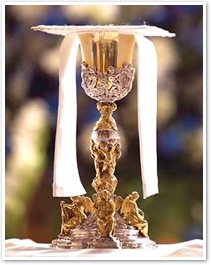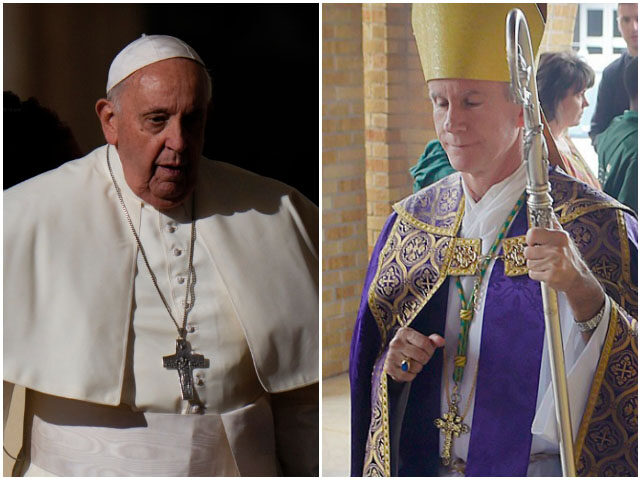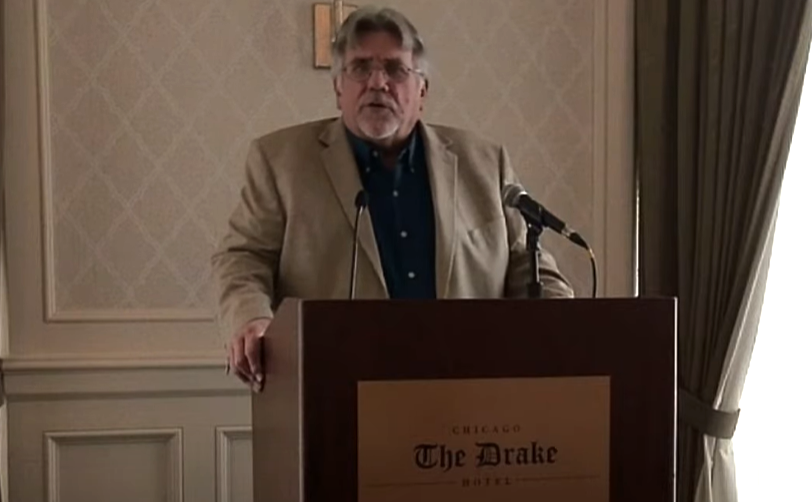8 Reasons to Go to Mass

Pompeo Senate Grilling Recalls a 22-Year-Old Prayer
April 13, 2018
Brad Mattes: A ‘Demonic Presence’ in Abortion Battle, Satan’s Way ‘To Drag Souls to Hell’
April 13, 2018
By Thomas Lickona, Catholic Education Resource Center
“Mass is boring.” “I don’t get anything out of Mass — why should I go?” “Why can’t I just pray alone?” These are common feelings, especially among young people but among many adults as well. How should we respond.
 “Do this in memory of me.” – Jesus (Luke: 22:19)
“Do this in memory of me.” – Jesus (Luke: 22:19)
“If you really thought about who you are, who God is, and how much thanks you owe Him, you would want to go to Mass. The Mass would become the source and center of your spiritual life.” – James Stenson
 These are common feelings, especially among young people but among many adults as well. The great Bishop Fulton J. Sheen, when conducting a retreat for teenagers, once gave a talk on the meaning of the Mass. He said, “If you don’t get anything out of Mass, it’s because you don’t bring the right expectations to it.” The Mass is not entertainment, he said. It is worship of the God who made us and saves us. It is an opportunity to praise God and thank Him for all that He has done for us.
These are common feelings, especially among young people but among many adults as well. The great Bishop Fulton J. Sheen, when conducting a retreat for teenagers, once gave a talk on the meaning of the Mass. He said, “If you don’t get anything out of Mass, it’s because you don’t bring the right expectations to it.” The Mass is not entertainment, he said. It is worship of the God who made us and saves us. It is an opportunity to praise God and thank Him for all that He has done for us.
If we have a correct understanding of Mass, Bishop Sheen said, it will become more meaningful for us. We will want to go to Mass. We will understand why the Mass is God’s precious gift to us, and we wouldn’t think of refusing that gift. Here are eight reasons to go to Mass:
-
The Command of God.
The Third of the Ten Commandments given to Moses by God is, “Remember to keep holy the Sabbath day” (Exodus 20:8).
-
The Command of Christ.
Why should we keep the Sabbath holy by going to Mass? The Mass was instituted at the Last Supper by Jesus before his Crucifixion. The Last Supper was the first Mass.
When the hour came, he [Jesus] took his place at the table with the apostles . . . Then he took the bread, blessed it, broke it, and gave it to them, saying, “This is my body, which will be given for you. Do this in memory of me” (Luke 22:14,19).
When we celebrate the Mass, we repeat the Last Supper, as Jesus commanded us to do. In doing this, we remember and re-present his great act of love for us on the Cross — taking our sins upon himself so that we, if we follow his commandments, can live with him forever in heaven.
-
The Command of the Church.
The Church teaches that we must fulfill the command of Jesus (“Do this in memory of me”) by attending Sunday Mass (or the Vigil Mass the night before). The Catechism of the Catholic Church (1994, pp. 493-94) explains that Mass attendance on Sundays and Holy Days of Obligation is the first of the six Commandments of the Church. These Commandments of the Church also require receiving Communion at least once a year during the Easter season, confessing any mortal sin as a preparation for Communion, and observing the prescribed days of fasting and abstinence. These Commandments spell out the minimal responsibilities of a Catholic. To fail to fulfill them through our own fault, the Church teaches, is a serious sin.
-
The Church speaks with the authority of Jesus.
Why should we obey these teachings of the Church? Where does the Church get its authority? From Jesus. In Matthew 16:18-19, Jesus made Peter the head of his Church — the first Pope. He gave Peter and the Church “the keys to the kingdom of heaven”:
I say to you, you are Peter, and upon this rock I will build my church, and the gates of hell shall not prevail against it. I will give you the keys to the kingdom of heaven. Whatever you bind on earth shall be bound in heaven; and whatever you loose on earth shall be loosed in heaven.
The Church’s authority in faith and morals is absolute because Christ’s authority is absolute.
-
What we do at Mass.
The Mass is first of all a sacrifice — the perfect sacrifice, created by Jesus. Through the priest we offer Jesus, Body and Blood, to the Father, just as Jesus offered Himself to the Father on the Cross. In an unbloody way, we repeat — make present — Christ’s death and Resurrection. Through this memorial of Jesus, we offer God our praise, sorrow for our sins, and deepest thanks.
The Mass is also a meal. At the Consecration, the bread and wine, through the power of the Holy Spirit, become the Body and Blood of Christ. Not a mere symbol, but Jesus’s real flesh and real blood, under the appearance of bread and wine. When we receive Holy Communion, we receive Jesus Himself. He is real food for our soul. He said this very plainly: I say to you, unless you eat the flesh of the Son of Man and drink his blood, you do not have life within you. Whoever eats my flesh and drinks my blood has eternal life, and I will raise him on the last day. My flesh is true food, and my blood is true drink. Whoever eats my flesh and drinks my blood remains in me and I in him. (John 6:55-56).
What are the benefits of Holy Communion? It strengthens our union with Jesus; He lives within us in a special way. It cleanses us from venial sins. (Mortal sins require forgiveness in Confession.) It gives us grace to avoid sin in the future. It increases our love of God and neighbor.
-
Why do we have to worship with other people?
God made us social beings. He wants us to come together in community to worship Him. Jesus said, “Where two or three are gathered together in my name, there am I” (Matthew 18:20).
-
What are the consequences for others if we stop going to Mass?
James Stenson points out:
Our ancestors risked persecution, even death, to be able to take part in Mass. When you have children someday, they will need the graces and strength that come from the Mass. If you fail to pass it on because of your own indifference, you will do the gravest injustice to them and to God. You have the power to snuff out, in one generation, the faith that has sustained your family for generations. This is an enormous responsibility. You will have to answer to God for it.
-
The benefits of Mass.
If we give God a chance, He will help us experience the tremendous benefits of the Mass and the Eucharist. James Stenson writes:
Be patient. Bring an attitude of prayer and thanksgiving to Mass, and you will reap great spiritual riches: consolation, confidence, peace, deep happiness, and spiritual strength for the challenges of life.
Mother Teresa once wrote: “Jesus is my God/ Jesus is my Spouse/ Jesus is my Life/ Jesus is my Everything. Because of this, I am never afraid.” Mother Teresa went to Mass every day. If we love the Mass as she did, we, too, will live in Jesus and he in us, and will we never be afraid.
 Acknowledgement
Acknowledgement
 Thomas Lickona “8 Reasons to Go to Mass.”Reprinted with permission of Thomas Lickona.The Author
Thomas Lickona “8 Reasons to Go to Mass.”Reprinted with permission of Thomas Lickona.The Author
 Thomas Lickona is a developmental psychologist and professor of education at the State University of New York at Cortland. He is the author of Character Matters: How to Help Our Children Develop Good Judgment, Integrity, and Other Essential Virtues and the Christopher Award-winning book Educating for Character. He has also written Raising Good Children and co-authored Sex, Love and You. Thomas Lickona was instrumental in development of the Center for the Fourth and Fifth Rs. He is on the Advisory Board of the Catholic Education Resource Center.Copyright © 2000 Thomas Lickona
Thomas Lickona is a developmental psychologist and professor of education at the State University of New York at Cortland. He is the author of Character Matters: How to Help Our Children Develop Good Judgment, Integrity, and Other Essential Virtues and the Christopher Award-winning book Educating for Character. He has also written Raising Good Children and co-authored Sex, Love and You. Thomas Lickona was instrumental in development of the Center for the Fourth and Fifth Rs. He is on the Advisory Board of the Catholic Education Resource Center.Copyright © 2000 Thomas Lickona




